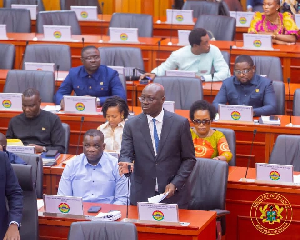A World Bank study has indicated that Ghana could face severe pressures from population growth, pollution and coastal erosion by 2025, the Environment and Science Ministry said in Accra.
The study shows Ghana is one of six West African countries that would experience water scarcity by 2025 unless effective water management policies are implemented by then.
"Several of the coastal lagoons are grossly polluted, fish catches, both ocean and near shore, are diminishing while beaches accumulate solid waste of all types from tar balls to plastics," the Ministry said.
Increasing tourism, it said, encourages the establishment of human settlements and associated industries, which when not properly planned, would lead to the pollution of the coastal environment, and consequently unsustainable coastal environment.
While Ghana is endowed with water resources, including ground water, there is a high variability in the amount of water available seasonally and over the years.
"Until very recently, water resources in Ghana have been widely mismanaged, used without regard to any management regulations or its future sustainability," the Ministry said in the document.
Currently, it said, less than 50 percent of rural people have access to safe water and fewer than 50 per cent of all people have access to sanitation.
It noted that the lack of river basin authorities with wide ranging cross-sectoral composition hampers the integrated management of land and water resources.
"The lack of enforcement by authorities of the myriad of existing regulations that control the use of water and the pollution of water is still a major problem rather than any gap in legislation," the document added.
It also said there was a significant gap in the application and documentation of traditional management and adaptation strategies to fluctuating amounts of available water.
According to the document, the future of capacity building in fresh water management in Ghana lies in the creation of river basin authorities, which would be charged with the application of integrated catchment management of their respective basins at the local level.
General News of Monday, 5 August 2002
Source:












